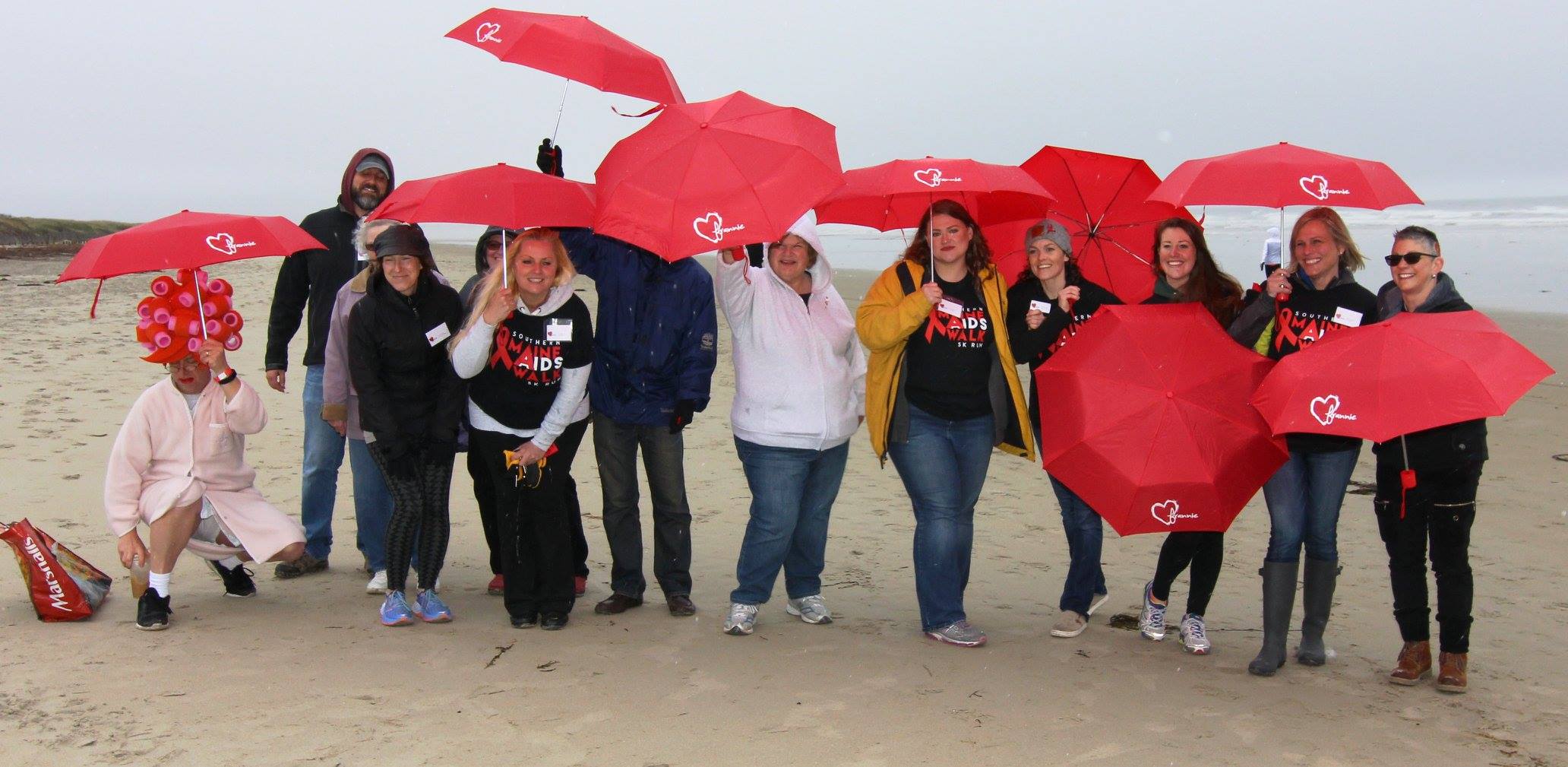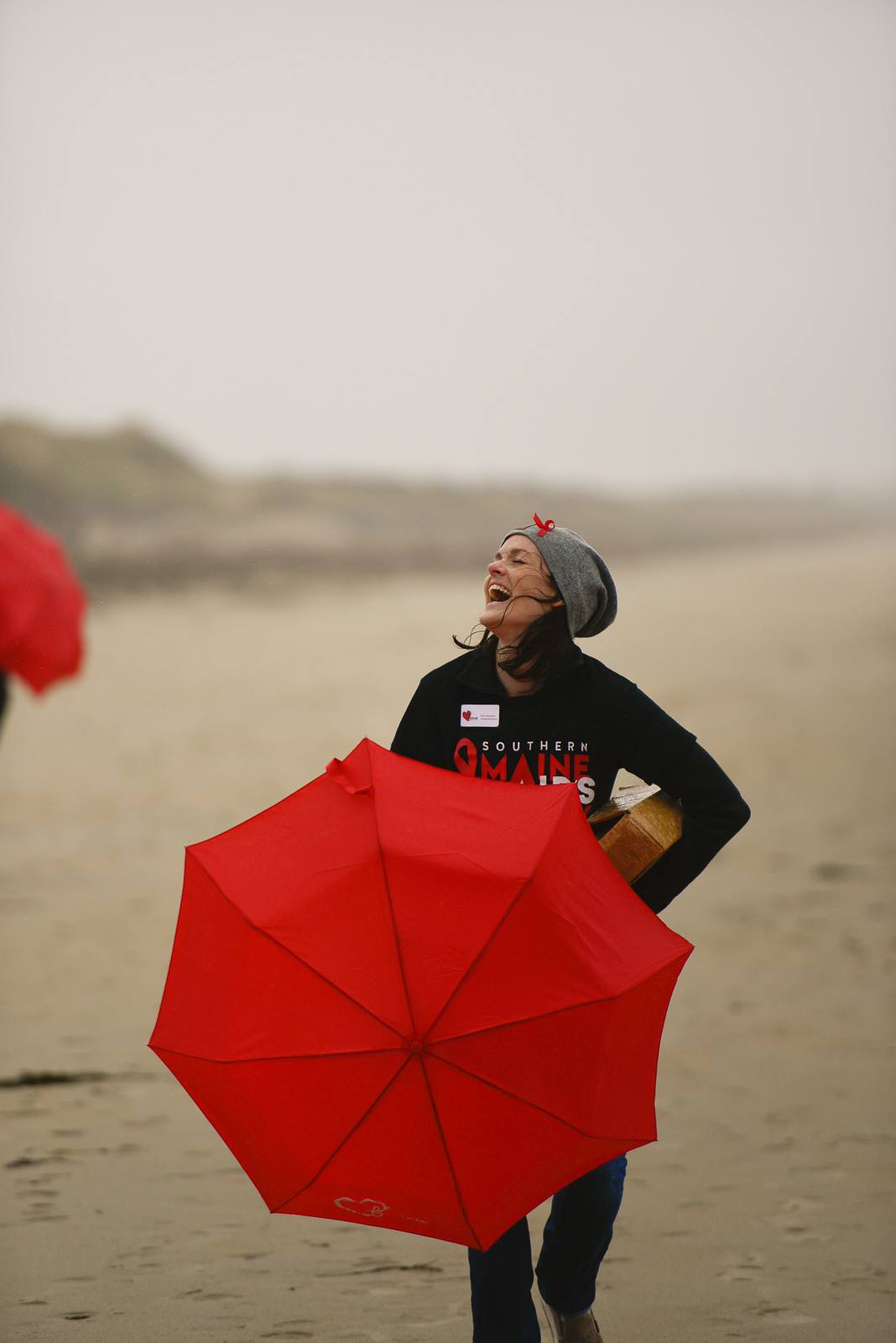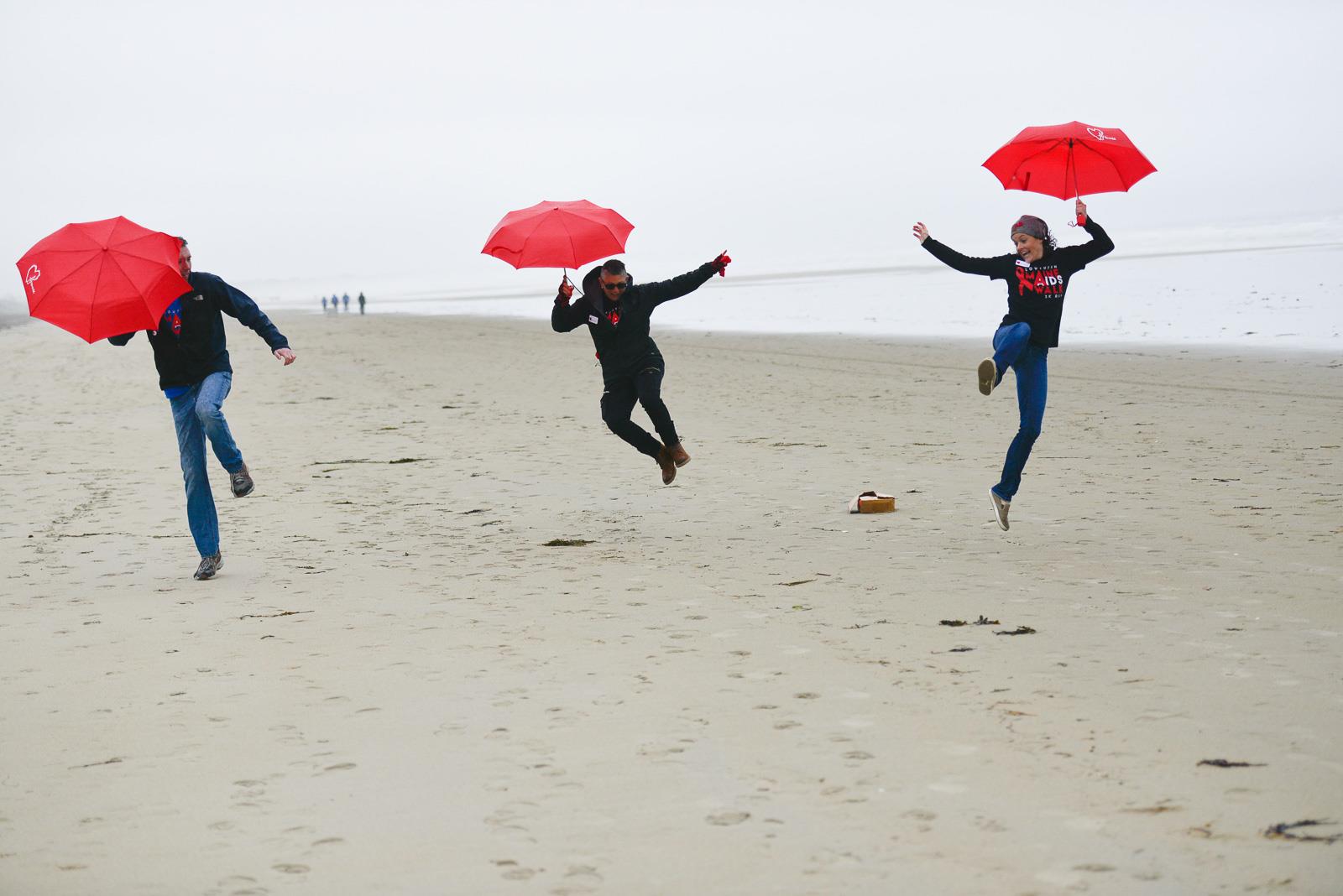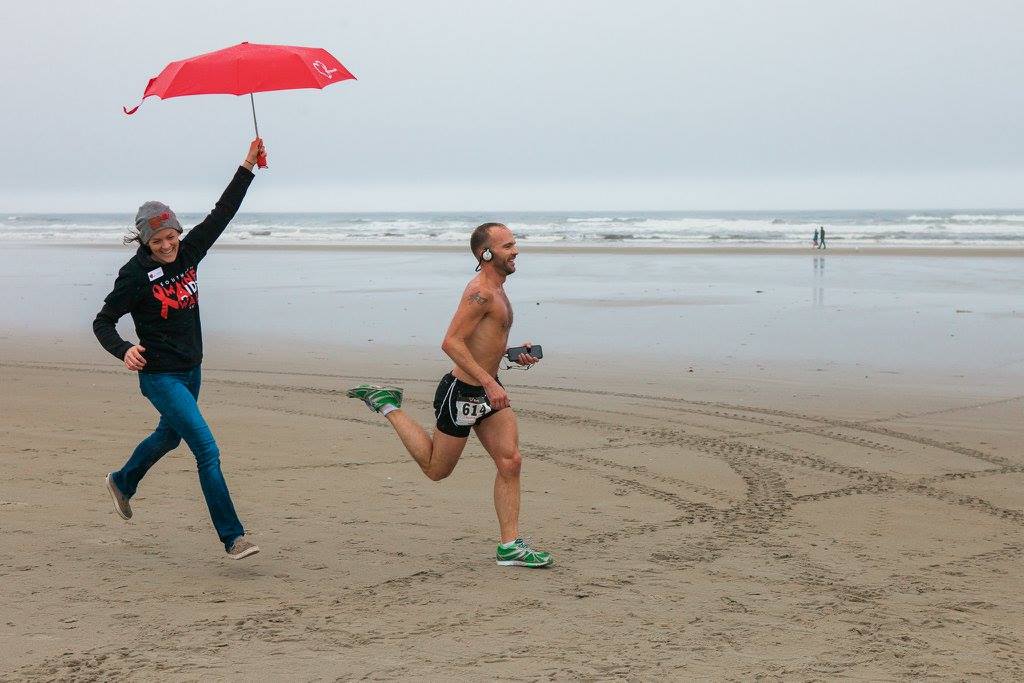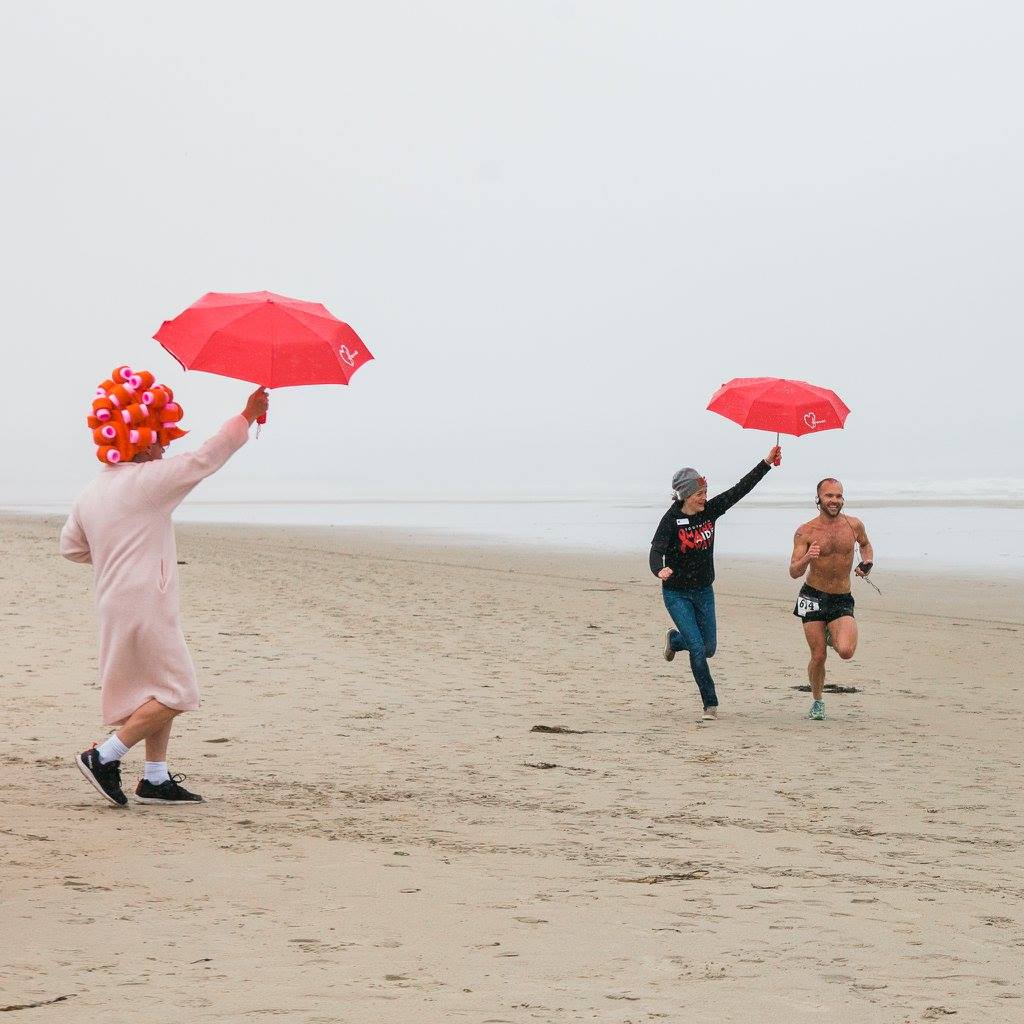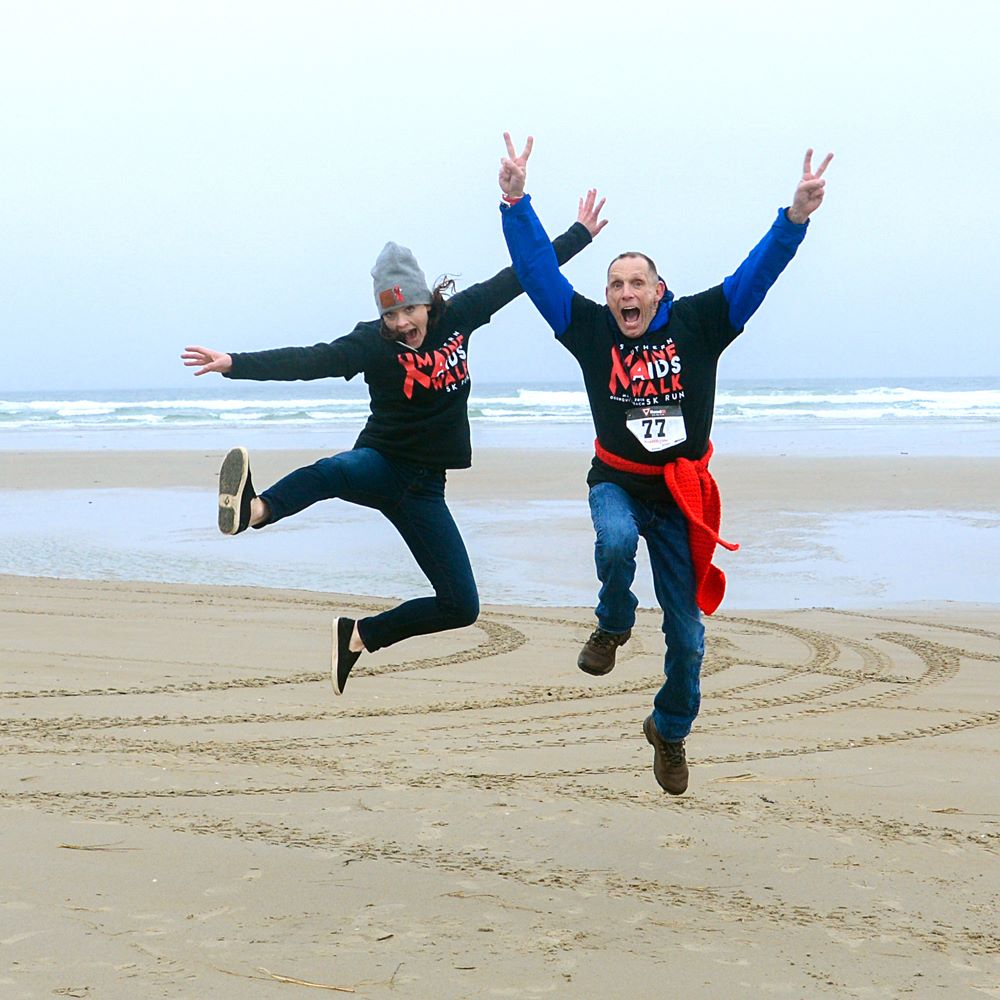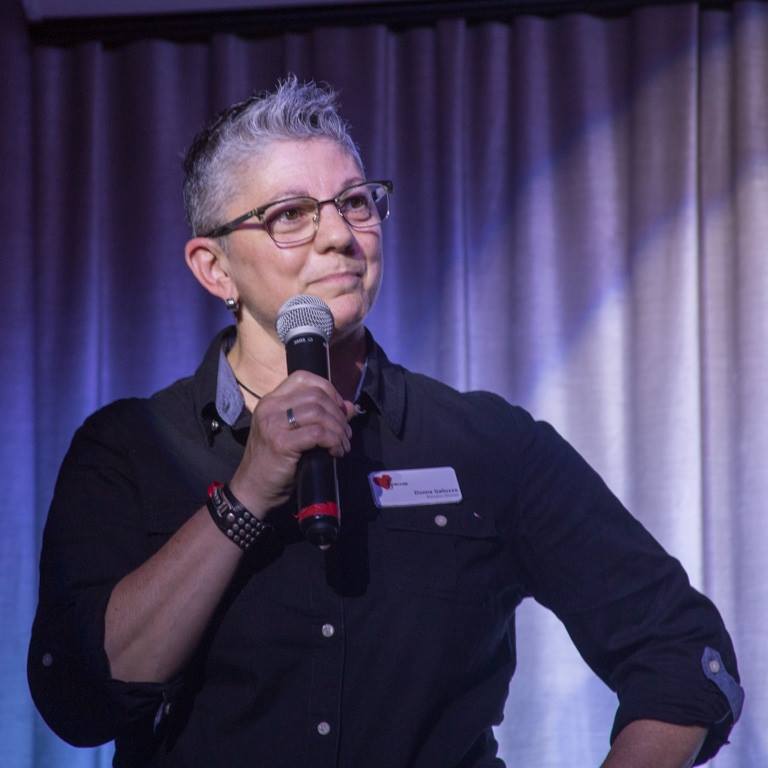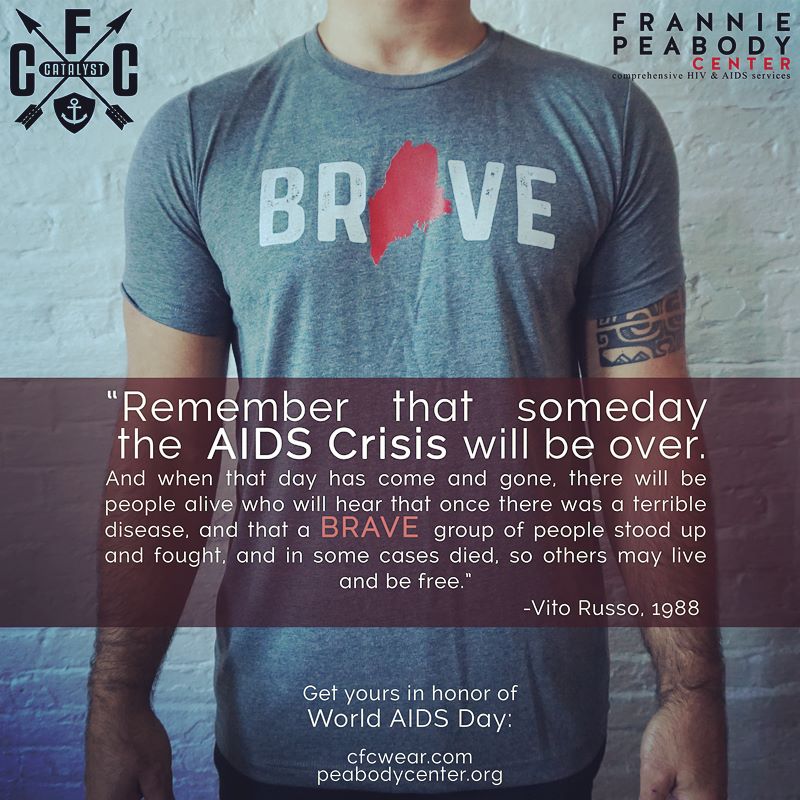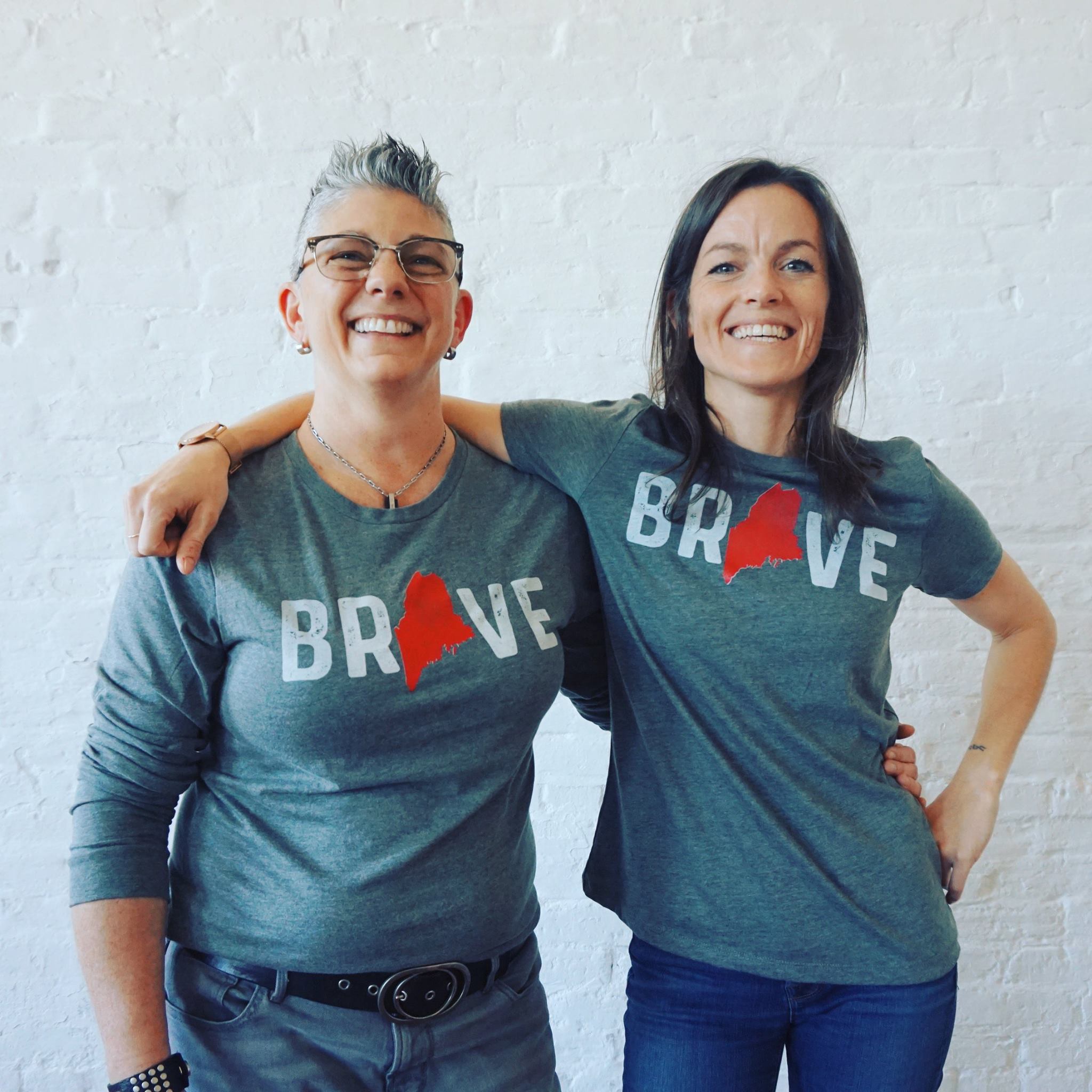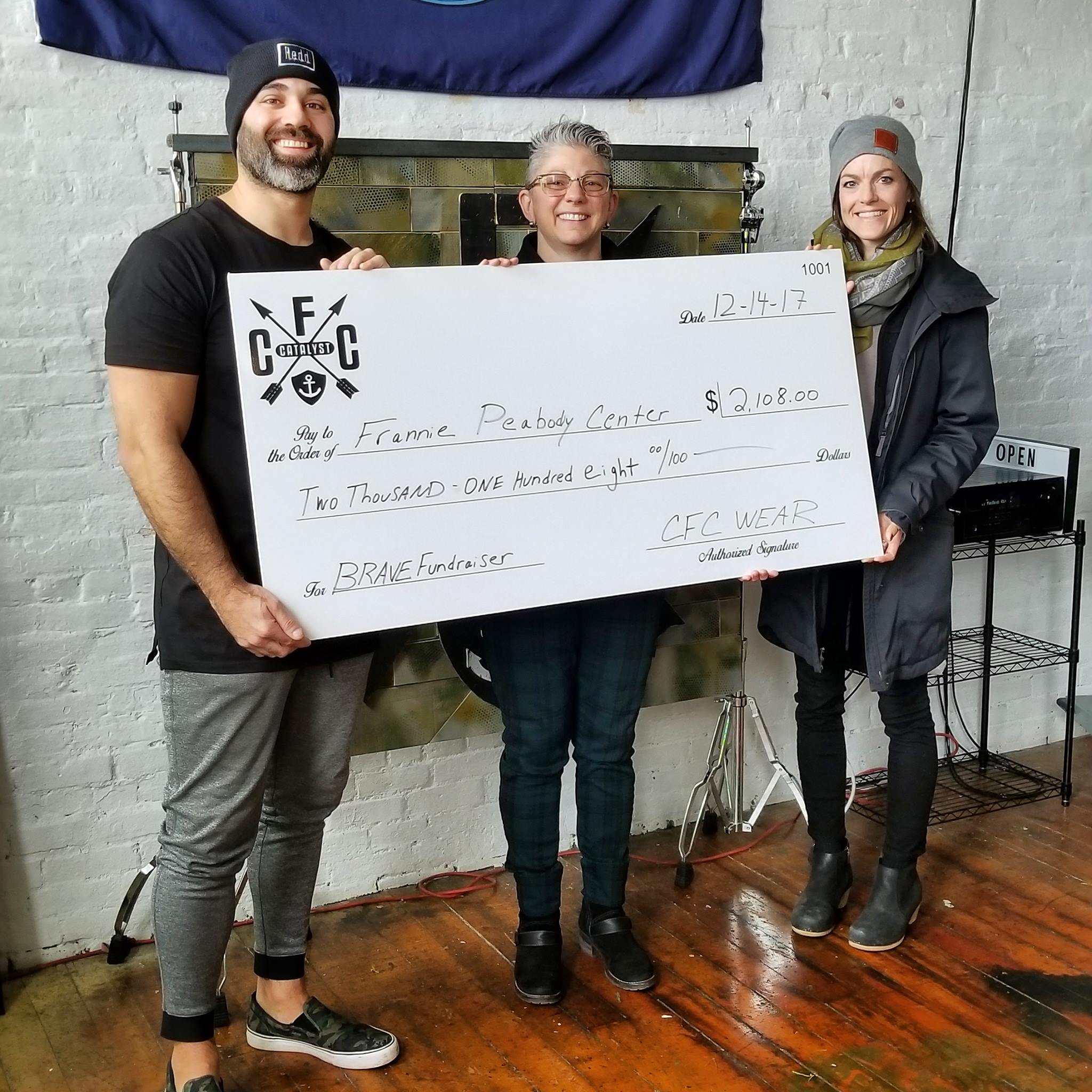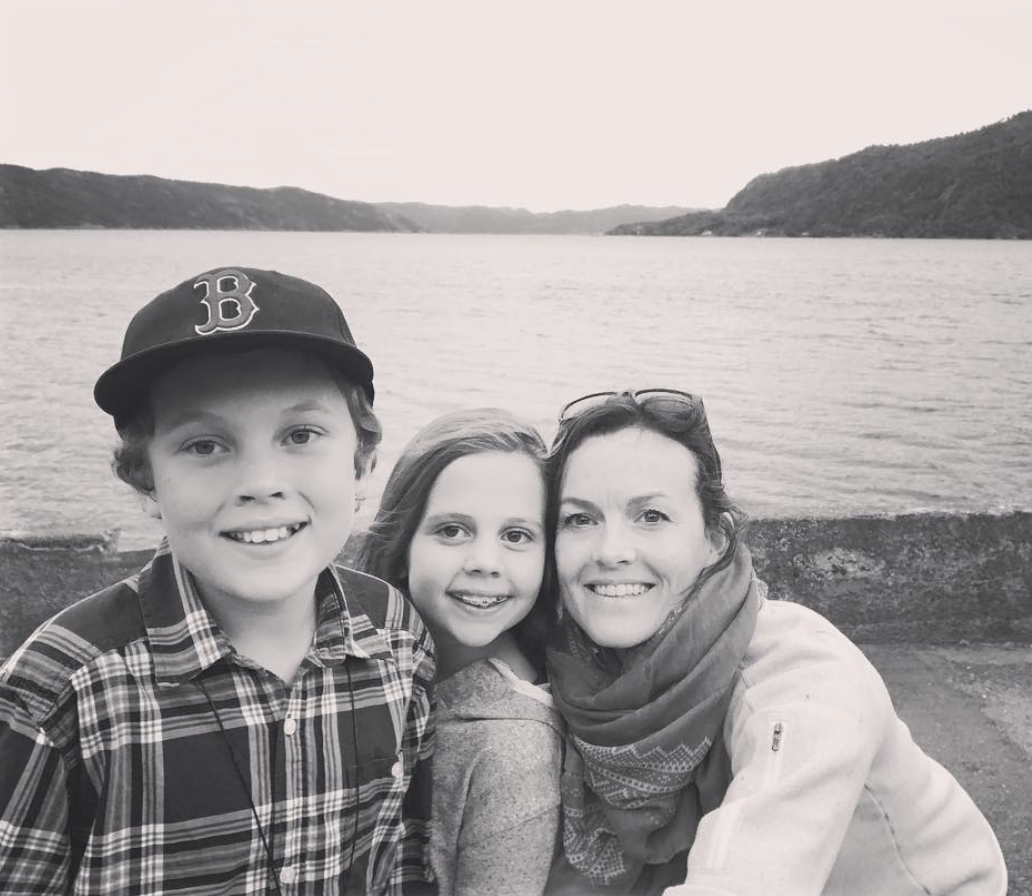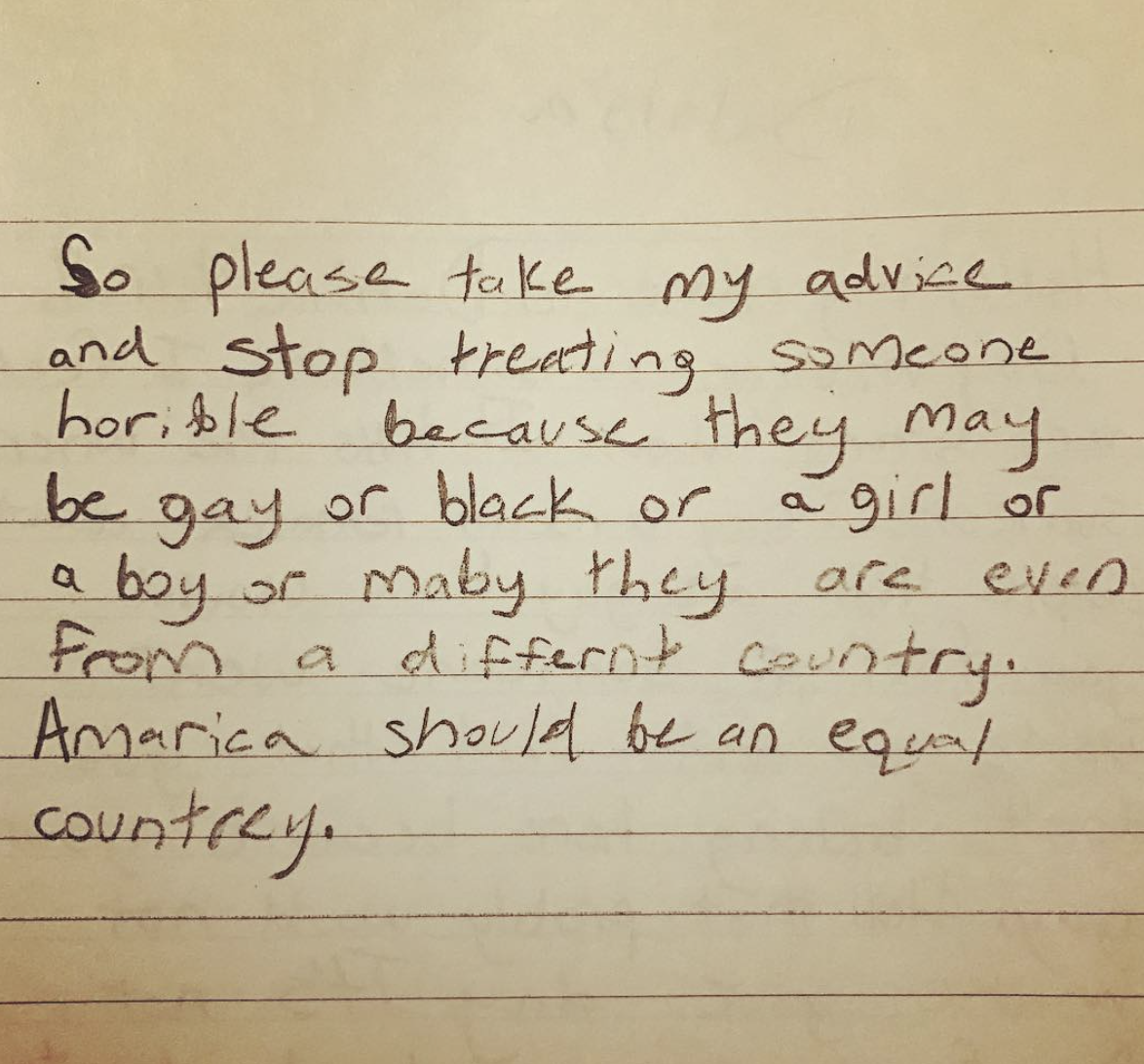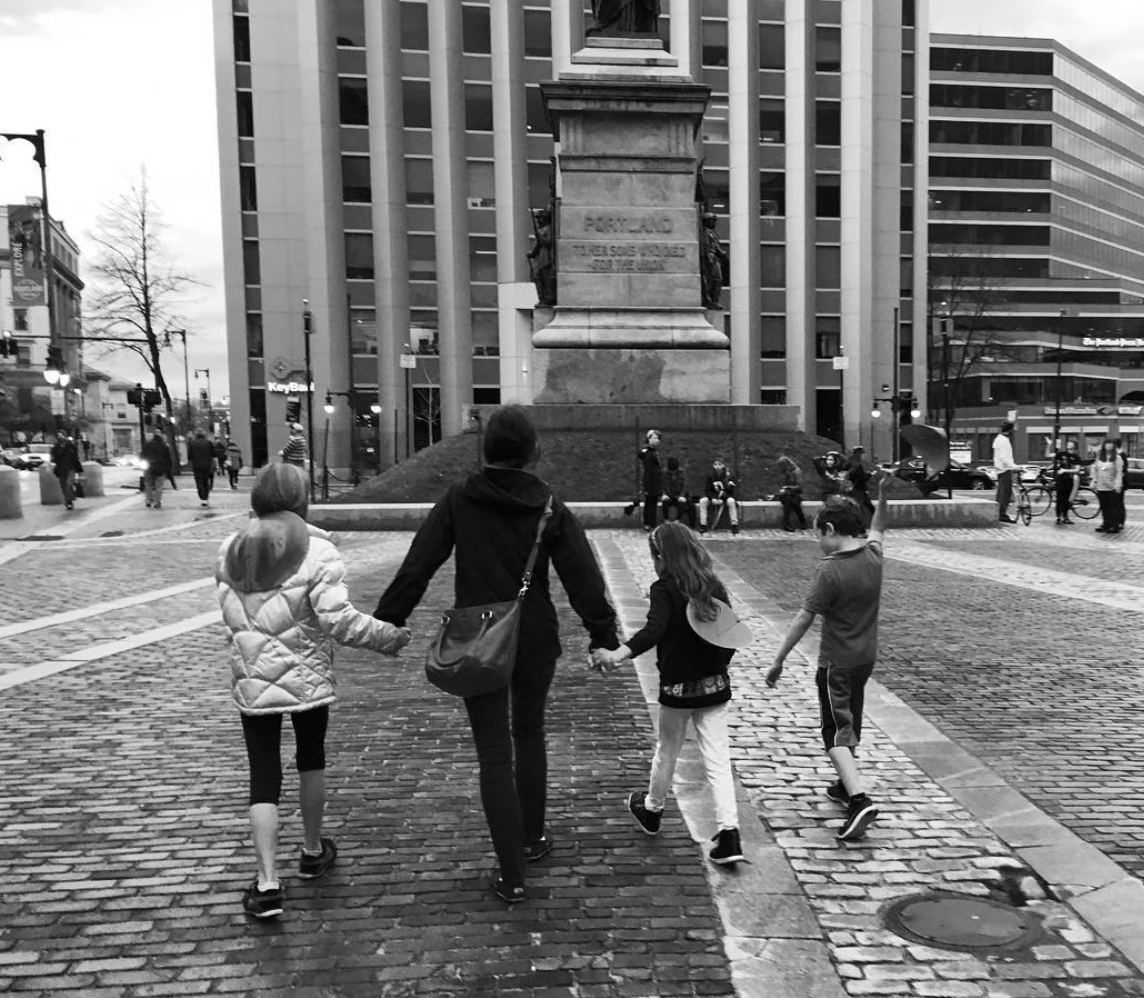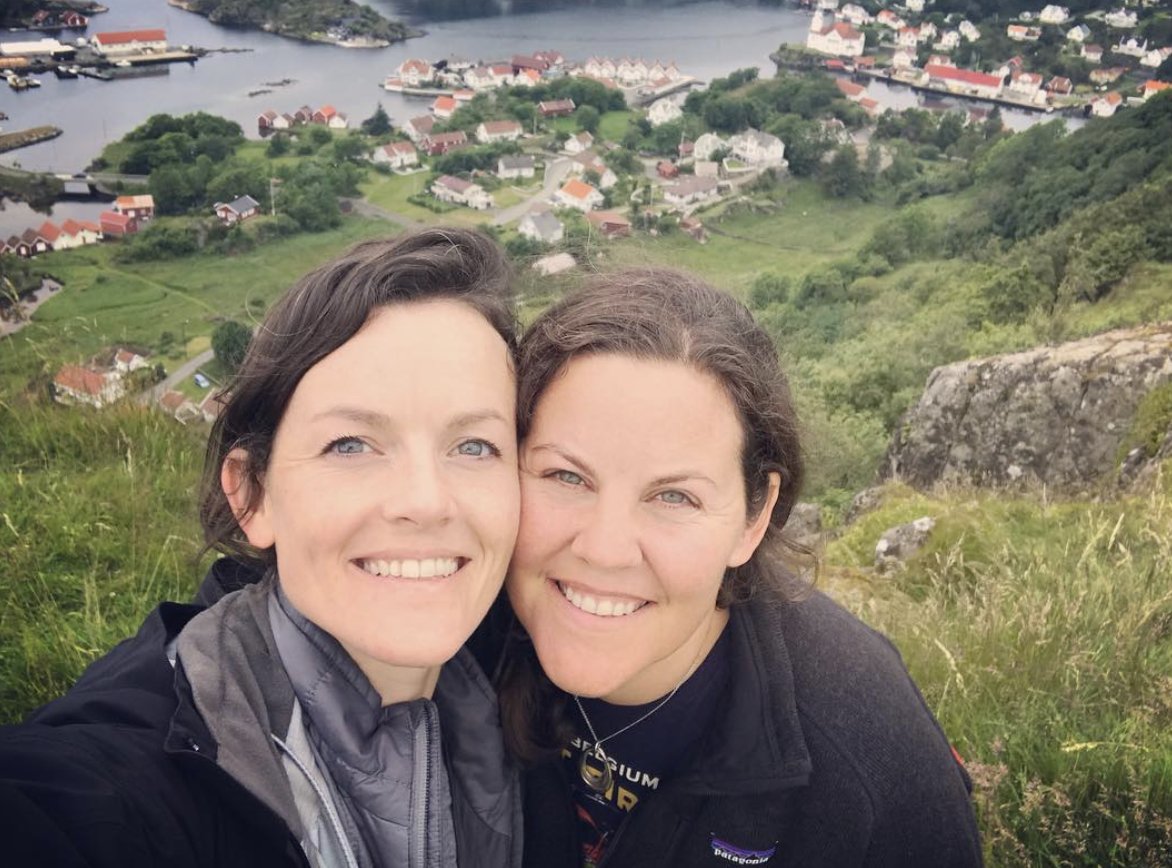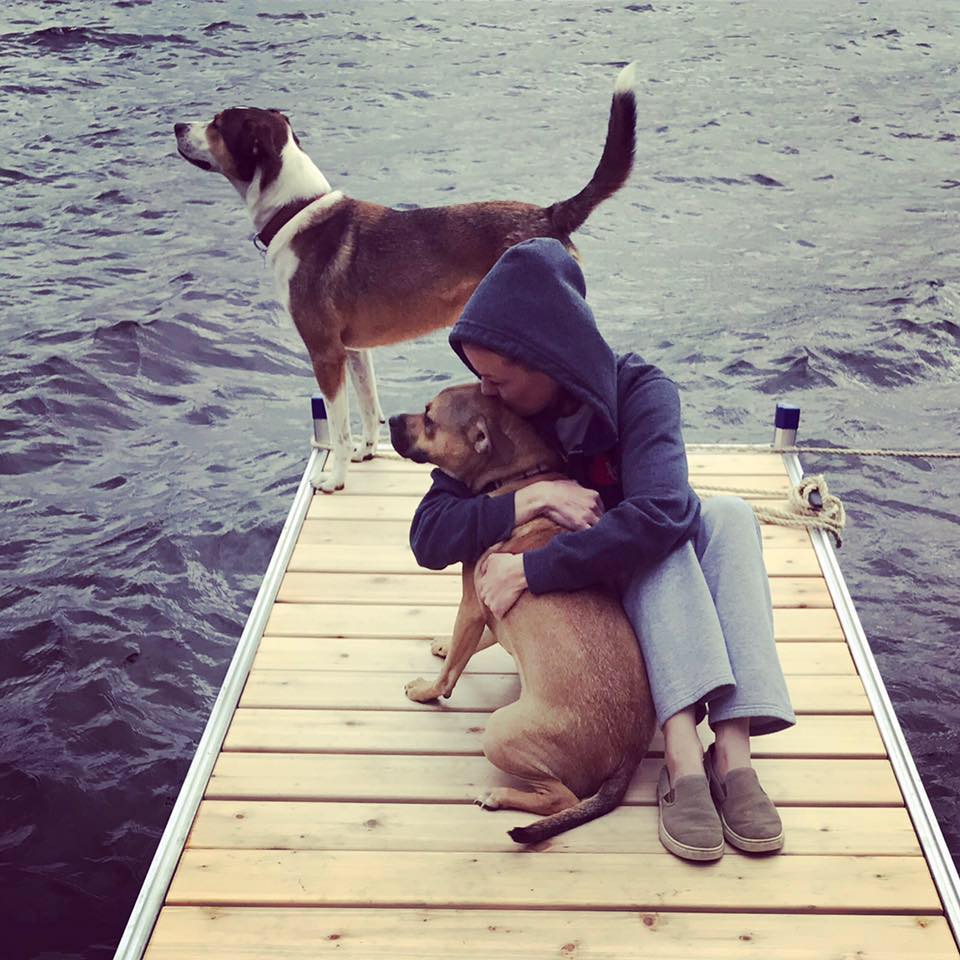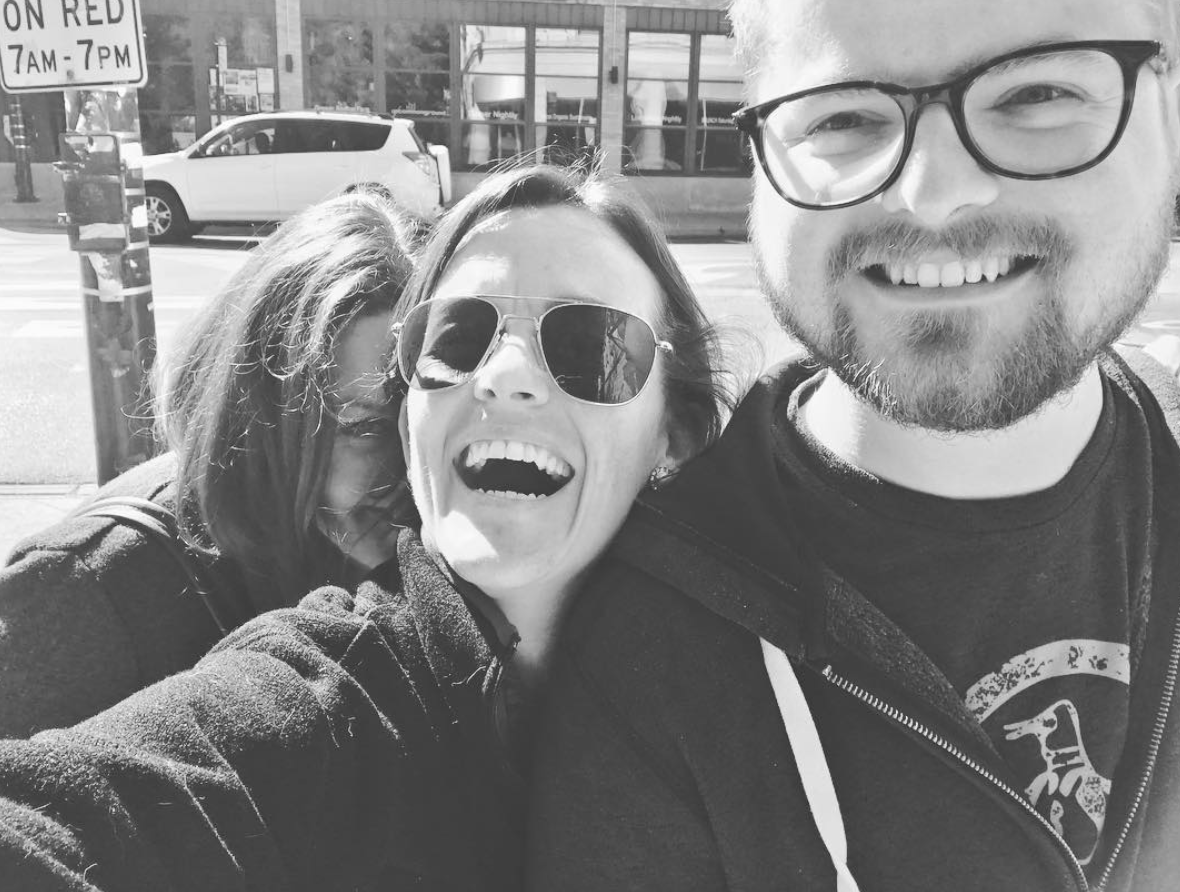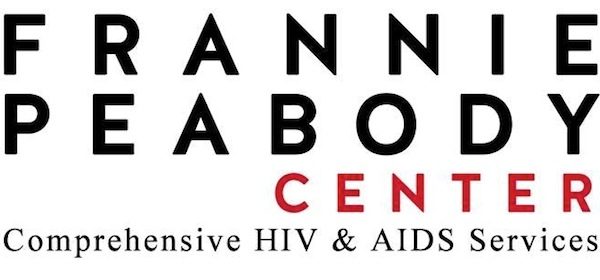It is clear to me, Katie was born an advocate. Her words resonate with me.
I asked Katie what message she would like me to share on her behalf: “Always try harder to consider and understand the challenges that other people face. Be kinder to each other, but never stop fighting oppression, injustice, and inequality.
Also, please remember to accept science. It’s real.”
When did you first get involved in working with non-profits?
I was on a Student Athletic Advisory Committee in college that coordinated service projects for all the athletes. At the same time, I was majoring in anthropology and taking a course on international development. I was very fortunate to have an athletic scholarship that allowed me to travel around the country and meet so many different people. I think all those things happening simultaneously made me realize I wanted a career in the non-profit sector working with people.
Do you think you were born with the innate qualities to help others or did this evolve over time through travels and life experiences?
I was brought up in an environment that taught us to stand up for what we believe in, particularly when those moments and movements involve inequality and injustice. I think my experiences have shaped and been shaped by those values, and certainly taught me a great deal along the way. I think those lessons and the people I have met have given me strength and little more volume in my voice when it comes to working for organizations that help others.
What lead you to your current position at Frannie Peabody Center?
I had been living in South Africa for four years running a small community-based non-profit organization that I started in a tiny village on the coast. When it became too difficult to sustain myself and the organization, I had to make the difficult decision to move back to the States. One of the issues that really stuck with me after leaving was HIV/AIDS. When I started looking for jobs in the non-profit sector, I wanted to really narrow my focus on that issue. Maine had been my home base while living overseas because my sister, niece, and nephew were all here. When I saw the job of Development Director come up at Frannie Peabody Center, I jumped at the chance – it seemed a little too good to be true in the logistical sense; working in the field I was interested in while also being able to be so close to my family. More than five years later, here I am. I feel very fortunate that I was able to figure out exactly what I was passionate about and have the resources, privilege, and support to call it work.
Scenes from the 2017 Southern Maine AIDS Walk - Photos By Maine Running & Faces Maine by Maine Magazine || The 2018 Southern Maine Aids Walk/5k Run will be held 5/5/18. Eary bird registration will be available HERE on 2/1/18.
“Katie is passionate - passionate about her work, about advocacy, about that state of the world. She puts 200% of herself into everything she does. I wish I could bottle her passion and share it with everyone!”
Can you explain what FPC is and what being The Director of Development includes?
Frannie Peabody Center is Maine’s oldest and largest HIV/AIDS services organization. We provide direct services for people living with HIV/AIDS in the form of medical case management, housing assistance, and behavioral health counseling, and we also provide free HIV and Hepatitis C counseling, testing, referral, and outreach services. We have an extensive history and compelling legacy with Frannie Peabody. She was a grandmother – in her eighties in the early 1980’s when she lost her grandson to AIDS. Never one to sit on the sidelines, she was an outspoken and unexpected advocate for those affected by HIV/AIDS at a time when many people would refuse to acknowledge the challenges and urgency of the issue. She rallied people together and was a transformative leader in the fight against HIV/AIDS in Maine. One of the things I admire most about her, having only experienced the stories second-hand, is how she coupled a very compassionate and loving spirit with being an incredibly strong and determined fighter. I think that’s something that has carried on at the agency because of her. Being the development director is traditionally about fundraising – that includes grant writing, events, maintaining the social media and web platforms, responding to state and federal proposal requests, and donor relations. However, being a small agency under 20 staff members, we really operate as a team. Non-profits are never working with excess capacity, that’s for sure, so we all jump in where we can across programs and projects. We celebrate the success together, and we feel the hits together. It doesn’t make it easy, but I think it makes us a stronger agency as a whole.
Frances W. Peabody (April 18, 1903 – June 26, 2001), known as Frannie, was an HIV/AIDS activist. Her work as an activist began at the age of 80 when her eldest grandchild was diagnosed with AIDS and continued for 18 years until her death in 2001. - Via Wikipedia
What are your thoughts on state & federal funding cuts on healthcare in general, but specifically HIV/AIDS Testing and Prevention Programs? Has this affected you?
I think the outlook for social services has taken a devastating blow, especially over the past twelve months. Funding & policies that negatively impact immigration, housing, education, climate, and so on, have a huge impact on health, and all these factors play a critical role in living healthy with HIV/AIDS as well as preventing transmission. As a low incidence state, Maine has been dealing with cuts to HIV/AIDS funding for many years in line with the National HIV/AIDS Strategy shifting funds to areas of higher incidence. From a national and global perspective, of course, we want resources to be focused in a strategic way on the areas that are hit the hardest by the epidemic. But locally, we know the people that are facing overwhelming challenges every day, so it’s difficult not to get frustrated when resources are pulled away. When it comes to prevention, we’re talking about lowering infection rates and making sure people have the knowledge and tools to protect themselves. So when these programs are effective, the data often illustrates a decreased need. The problem with this perspective is that the need is very much still there even when new infections are not necessarily on the rise. The most obvious and very recent example of this is when the closure of syringe exchange programs in Scott County, Indiana led to an HIV outbreak in 2015. As we continue to see the effects of a growing opioid epidemic in Maine, limited access to HIV prevention services also remains a concern. HIV/AIDS can be managed as a chronic disease thanks to some incredible developments, but that does not mean it should be dismissed and overlooked. The stigma, fear, and ignorance that was so prevalent in the 80’s is still very much a reality for a lot of people today. As with any public health issue, we have to remain committed to evidence-based strategies, looking at the interconnectedness of different barriers, identifying and addressing disparities across communities. We have to treat people with respect and understanding, and not become complacent.
In honor of #GivingTuesday, CFCWEAR (Catalyst For Change -- clothing that creates change) collaborated and donated 100% of profits from BRAVE shirts to the Frannie Peabody Center.
What is one challenge and lesson you've learned from your role(s) in leadership?
One thing that I continue to face is that sometimes no matter how hard you work, you will not win every battle. I grew up thinking that as long as I worked hard enough, nothing was out of reach. And sure, you will come up against the “you can’t do that, you’re too [insert condescending insult here]”, but I was taught I could do anything I put my mind to. My sister and I have a bit of a joke that the second you tell one of us we can’t do something, well, then, we’ll definitely do it. That kind of determination will definitely carry you through some trying times, but in the tumultuous waves of legislative policy, executive power, money, medicine, and the occasional “not a chance in hell”, you have to accept some failure. Not to rain on my childhood parade, but I think that lesson helps with getting back up and holding on to even more hope and fire as you face the next challenge.
What is one invaluable resource that has helped in the sustainability of FPC?
The resiliency of our staff and clients is what has kept Frannie Peabody Center going for over thirty years. It’s a pretty amazing place to walk into every day, knowing that you are surrounded by people who are determined, compassionate, and incredibly capable.
I would be remiss to not mention our supporters who have been with us every step of the way – whether through advocacy or fundraising. Because of so many strong individuals that came before us, many of whom are no longer with us, we have federal funding for housing, case management, prevention services, and effective medication for those living with HIV/AIDS. It’s easy to get bogged down by red tape and funding cuts, but I try to remind myself that we are very lucky to have access to those resources.
What do you like to do outside of work that contributes to your career?
Listen to a lot of NPR, and run. (the NPR to stay current, the running to blow off steam and think of a plan after hearing about all the bad news on NPR)
What is your proudest personal and professional accomplishment?
I’m proud that I’ve always tried to put my all into everything, both personally and professionally.
“Katie is generous with her heart, her time and her mind. She is present and accountable in a very purposeful way.
One word to describe Katie: Nimble
”
I'd like to share one message with the world on your behalf, what should I share?
Always try harder to consider and understand the challenges that other people face. Be kinder to each other, but never stop fighting oppression, injustice, and inequality.
Also, please remember to accept science. It’s real.
What is your favorite inspirational/motivational quote?
Not so much a quote but a philosophy and quality – Ubuntu.
Loosely translated, it means “I am because we are”. It’s a concept that was used as a founding principle in post-apartheid South Africa that focuses on the interconnectedness of people. It’s something I’ve carried with me for a long time and thought about a lot. Desmond Tutu explains it as “my humanity is inextricably bound up in yours.” I think if more people took the time to read about and strive for ubuntu, there would be much less division, and much more understanding and accountability. When you see yourself as part of the whole of humanity, you can’t ignore issues or turn a blind eye. It helps in understanding that you are made up of all the good and bad that we see around us and forces us to recognize that our actions have ripple effects.
In one word describe yourself:
goofy
To Connect w/ Katie &
Website: peabodycenter.org
Facebook: facebook.com/franniepeabodycenter
Instagram: instagram.com/franniepeabody
Twitter: twitter.com/peabodyctr


